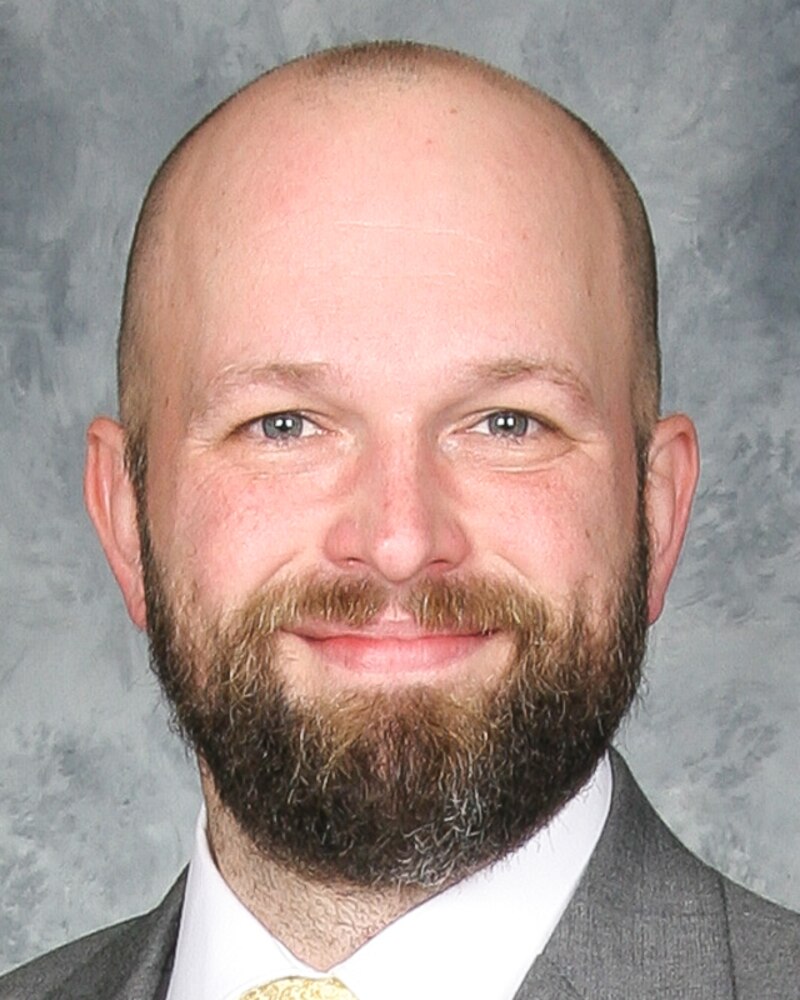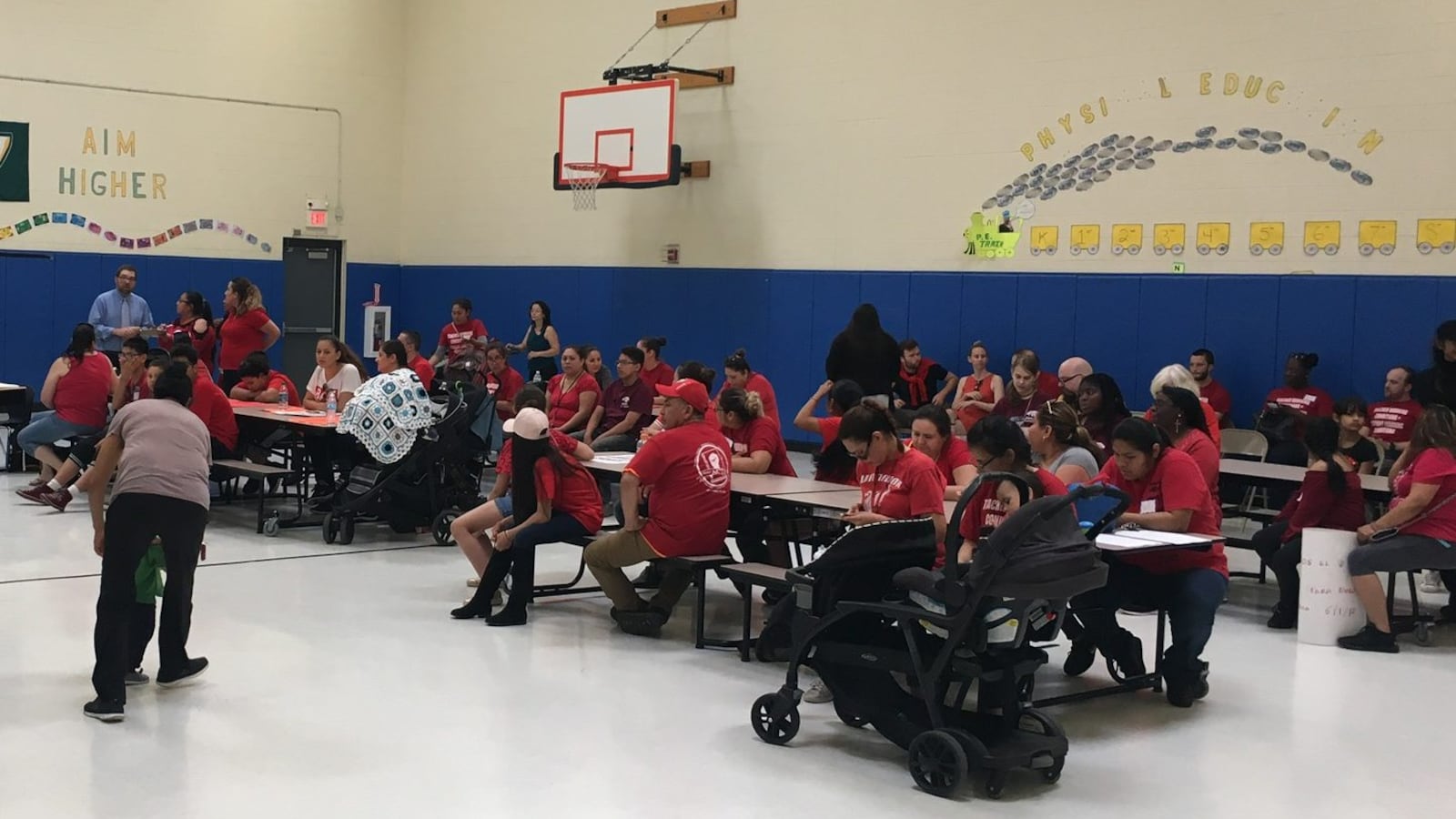Frank Donner was sold from the moment he heard the pitch in 2013.
Lighthouse Academies promised that their new school in Southwest Detroit would emphasize arts instruction — a rarity in the city. And, crucially, they went to unusual lengths to get input from parents and leaders in the neighborhood.
Donner, a veteran Detroit educator, had heard from too many parents who felt disconnected from their schools. He signed up to teach.
But the problems began almost right away, and they have continued since Donner lost his job in April as principal. He had held the job for almost two years, longer than anyone else in the school’s five-year history. Officials at the school are now searching for its fifth principal.
Chalkbeat visited a parent meeting last month at the renamed Southwest Detroit Community School to find out why this school founded with deep community support is struggling to make it in the city, but we couldn’t reach Donner before the story was published.

In phone interviews this week, he said that his belief in the school’s mission didn’t waver when administrators began to leave and it became clear that the school lacked basic curriculum resources. In 2016, he was named principal with the support of parents.
“What was so exciting about Lighthouse and then Southwest (Detroit Community School) was being responsive to the community,” he said. “We weren’t completely successful, but we made some strides. The more we can really engage with all the stakeholders, that’s where we’re going to make some progress.”
What happened next was not unusual for any of Detroit’s troubled schools. But given the school’s promising start, it provided a stark reminder that enthusiastic good intentions aren’t always enough to overcome an education environment as unforgiving as Detroit’s. Lighthouse had no experience operating in Michigan, where state policy encourages fierce competition among schools. And the person tapped to turn the school around when Lighthouse failed — Donner — had never worked as a principal before.
Donner was confronted with the school’s problems almost as soon as he stepped into the principal’s office. He told Chalkbeat this week that administrative confusion and scant resources hurt the schools ability to serve its more than 400 students. He traces the issues partly to Lighthouse, and partly to an education system in Detroit that requires schools to invest time and energy into competing with each other.
“There wasn’t much infrastructure,” he said, recalling his first year on the job. “There was no institutional knowledge. There weren’t clear curriculum resources. There wasn’t a body of lesson plans that had been written down. It was a lot of winging it. Curriculum components had changed every year it was operating.”
Making matters worse, Florida-based Lighthouse struggled to grasp the requirements placed on schools in Michigan.
“It was a little choppy for Lighthouse operating in Michigan as an out-of-state operator,” Donner said. “They didn’t have as much context for the nuances of the Michigan scene.”
Lighthouse also ran up against headwinds faced by every school in Detroit, where they must compete for students and teachers.
“We’re not the only neighborhood where you’ll have a school that opens up on a corner without telling anybody,” said Christine Bell, a board member at Congress of Communities, one of the community organizations that offered advice to the new school. “And then they’re siphoning kids from another school, and then nobody wins.”
With hundreds more open classroom seats than students to fill them, competition between schools in Southwest Detroit is fierce. In Michigan, where state education funding is tied to school enrollment, schools struggle to survive without full classrooms.
Charter schools were flooding into Southwest Detroit in 2013, when the school opened. Districts outside the city were recruiting heavily in the area, Bell recalled, even offering free busing to students who would leave their neighborhoods. More than a dozen charter organizations announced plans to open schools in the area, she said.
“We had a position dedicated to going out into the community to recruit,” Donner said. “All of these things take a lot of time, energy, and people power — and then the return might be one or two students.”
Despite its struggle to stay afloat, Donner says a core of parents and teachers have remained committed to the school and to the values of inclusivity and community involvement that underpinned it from the start. That core was on display last month, when a march to support the teachers union in its upcoming contract negotiation drew dozens of parents and children to the school.
“There is in some ways a lot of stability at that school, even as there’s more instability than any other school I’ve seen,” he said.
Nonetheless, Donner became the latest principal to leave the school after the charter operator decided in April that test scores weren’t rising quickly enough. The school faces possible closure by the state if scores don’t improve. Heather Gardner, president of EAS Schools, which replaced Lighthouse as the charter operator, says the school needs a more experienced principal with a track record of turning struggling schools around.
Donner says he was aware of his own inexperience, but took the job anyway because teachers and parents asked him to.
“I agreed to do it as a member of the community,” he said. “It was daunting, certainly, but I felt that it was the right thing to do, to try to bring some continuity to the school.”
Now, as parents organize to fight for a new teacher contract, he is looking for another job. He wants to be back in a school by next fall, either as an administrator or a teacher. It could be a charter school or a school in the main district — as long as it’s been around for a while.
“As I look for places where I want to work, I’m looking for places that are a little bit more established,” he said.

